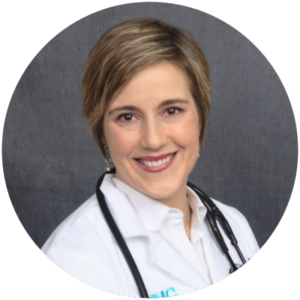Locums CME is a bi-weekly roundup of recent news that matters to locum tenens providers. Stay in the loop on what’s new in the locums industry, and make the most of the locum tenens lifestyle with our fresh finds.
The Economics of Healthcare: Factors Shaping Physician Earnings in the US
8/4/2023
The average physician in the United States earns $350,000 per year. But top doctors can pull in as much as 10 times that.
These figures came from a comprehensive study conducted by the National Bureau of Economic Research that analyzed more than 10 million (yes, million) tax records from 965,000 physicians over more than a decade. The study found that while the average physician earns around $350,000 annually, the top 10% of doctors earn an average of $1.3 million, and the top 1% astonishingly average $4 million.
It’s not hard to understand why. The healthcare industry is highly specialized and regulated. If anything, the study’s findings underscored the connection between specialization and higher earnings, with specific fields like neurosurgery, orthopedic surgery, and radiation oncology commanding peak earnings of around $920,000, $789,000, and $709,000, respectively.
The analysis, when first introduced on Twitter — recently renamed “X”— sparked much discussion and debate. Even though these findings are rooted in hard data, they sparked controversy among medical professionals. The implications challenged the prevailing notion that doctors are primarily motivated by an altruistic goal instead of a financial one.
However, the study’s authors point out that the narrative that high incomes imply a lack of dedication to patient care is far from true. There’s no reason a professional can’t strive for financial stability while prioritizing patient well-being. Such behavior is expected in the labor market, regardless of profession.
So, there was a deeper examination of the factors contributing to physician earnings. What they found was that there were various dynamics at play, such as:
- Graduates from top medical schools often choose specialties that offer higher pay, aligning with rational career decisions.
- Additionally, there’s a correlation between Medicare payment rates and billing practices, which sheds light on the interplay of economics in healthcare.
Despite the debate, these findings highlight the evolving healthcare landscape and the intricate balance between financial incentives, medical training, and the pursuit of quality patient care.
The study also contributes to the ongoing discussion about the physician shortage in the US and discusses some of the recent efforts underway to increase residency positions. You can read more in this extensive report from The Washington Post.
Your Locums Prescription
Weatherby's Webinar on Physician Compensation Strategies
8/23/2023
In Weatherby Healthcare’s upcoming “Physician’s Guide to Competitive Compensation” webinar on Sept. 6 at 6 p.m. EST, healthcare professionals currently working or interested in locum tenens work will have the opportunity to dive into the intricacies of different compensation strategies for providers.
 Ronney Davis, senior director of Weatherby Healthcare, is leading the webinar. Davis will offer insights into diverse payment structures available for physicians and help them make informed decisions aligning with their career goals.
Ronney Davis, senior director of Weatherby Healthcare, is leading the webinar. Davis will offer insights into diverse payment structures available for physicians and help them make informed decisions aligning with their career goals.
The event will distinguish between compensation approaches in locum tenens positions and permanent roles. Attendees can expect an exploration of fundamental compensation principles and the influential factors shaping physicians’ income in these contexts. The discussion will center around the distinctive attributes and advantages of locum tenens engagements.
Secure your spot today by registering at this link.
From Start to Finish: How Locum Tenens Benefits Providers Throughout Their Careers
8/14/2023
Locum tenens positions can benefit any healthcare provider at any point in their career. If you’re a physician or advanced practice provider looking for higher pay (who isn’t?), a change of scenery, free travel, reduced admin duties, and flexibility, it might be time to try it out.
There are locum tenens opportunities at each stage of a provider’s life, and Health Carousel Locum Tenens broke out some of the benefits of locums for each stage.
1. Recent graduate: As many as 21% of residents choose to work locum tenens jobs right out of training. Locum tenens helps residents:
- Start paying off student loans
- Gain work experience while traveling the world
- Earn higher wages
2. Providers looking to start a family: Locums gigs allow providers to work more flexibly and spend more time with their families. Also, the growing demand for physicians will enable locums to choose from more options that align with their needs.
3. Healthcare workers experiencing burnout: Working as a physician, nurse practitioner, or physician assistant can be demanding. The workload leaves healthcare providers burned out. Locum tenens combats the problem by giving providers temporary schedules and the opportunity to take a break and offer a vacation to a fellow employee in a healthcare facility.
4. The provider heading toward retirement: If a provider is nearing retirement and wants to step away, then locum tenens allows them to customize their schedule. They can also take on locum tenens gigs post-retirement from their full-time position to earn extra income.
Locum tenens is an excellent choice for providers looking for flexible work opportunities. If you want to learn more, read the full article from Health Carousel Locum Tenens.
Overcoming the Licensing Barrier: A Quick Breakdown of The IMLC
8/16/2023
Is the state licensing process one of those barriers preventing you from pursuing locum tenens? It can seem daunting initially, but it’s a lot easier now because of the Interstate Medical Licensure Compact (IMLC).
Hayes Locums answered five of the most common questions about the IMLC in an article earlier this month. Here’s the scoop:
- What’s the IMLC? In short, it’s a pact between states that makes it easier for physicians to get licenses to practice in different places without sacrificing quality checks on qualifications.
- Why should locum tenens physicians care? Well, the IMLC speeds up licensing significantly. Usually, getting licensed in a new state can take like six months or more. But with the IMLC, if docs meet the requirements, they can cut that down to days or weeks.
- How does the IMLC work? Once physicians have the State of Principle License, and they fulfill the Compact’s stringent criteria, they can seamlessly obtain licenses for any of the participating jurisdictions. So, instead of dealing with several separate applications, physicians just fill out one.
- Who’s in the IMLC? Many states are already on board, with 41 states, plus Washington D.C. and Guam, currently part of the Compact. It’s been growing because of the rise in travel doctor jobs and the need for quicker processes.
- Do docs need to sign up? It’s not mandatory but can speed things up, especially if you’re eyeing multiple out-of-state gigs. Some hospitals even prefer docs with IMLC or active state licenses, which is worth considering.
Read the complete article on Hayes Locums’ website.
Physician Wellness Retreat
Study Shows Maladaptive Perfectionism Increases Depression and Suicidal Risk Among Physicians
7/31/2023
Physicians with maladaptive perfectionism — people who are consumed by a desire to achieve an unattainable level of perfection — face a higher risk of depression and suicidal thoughts compared to those without this neurosis, according to a recent psychology study.
The study revealed that the following characteristics were linked to poorer mental health outcomes:
- Excessive concern over past mistakes
- Fear of making new ones
- Doubts about correctness
The research, published in Frontiers in Psychiatry, analyzed 160 physicians before and 86 during the COVID-19 pandemic. Notably, over 22% of participants were classified as high-risk for lifetime suicidal behaviors, with 27% reporting recent suicidal thoughts. The findings suggest a consistent risk of maladaptive perfectionism-related issues before and during the pandemic, underscoring the need for targeted interventions among physicians.
Comparatively, this study’s figures are concerning but less severe than a 2023 Medscape survey, which indicated that 53% of US doctors experienced burnout and 23% felt depressed. You can access the full study online, or read Health Exec’s breakdown in the full article here.
Championing Change: Dr. Stefanie Simmons Leads the Way in Physician Mental Health Advocacy
8/4/2023
 Emergency Medicine physician Stefanie Simmons, MD, shared her experience with mental health struggles in a recent American Medical Association (AMA) article. She said after having her second child during her emergency medicine residency, she experienced postpartum depression but feared having a formal diagnosis because it could negatively impact her career prospects.
Emergency Medicine physician Stefanie Simmons, MD, shared her experience with mental health struggles in a recent American Medical Association (AMA) article. She said after having her second child during her emergency medicine residency, she experienced postpartum depression but feared having a formal diagnosis because it could negatively impact her career prospects.
Dr. Simmons, now the chief medical officer of the Dr. Lorna Breen Heroes’ Foundation, aims to reduce barriers for other physicians seeking mental health support.
Numerous state medical boards, influenced by organizations like the Dr. Lorna Breen Heroes’ Foundation, AMA, and Federation of State Medical Boards, have reevaluated their licensing applications to revise intrusive questions and eliminate the stigma around mental health and substance use disorder treatment.
Dr. Simmons began advocating for change over a decade ago, recognizing the need for resources and support to combat burnout and mental health issues. Her efforts, now extended nationally, involve working with lawmakers in Washington, D.C., to address physician well-being in bipartisan discussions.
Learn more about AMA’s campaign against mental health stigma by reading the entire article here.
Achieving Work-life Stability By Adopting a ‘Physician Third’ Mindset
8/5/2023
In a KevinMD article, medical student Stephen J. Foley talks about the concept of work-life “stability,” which he says differs from the more traditional “work-life balance.” Foley’s new perspective emphasizes the need to be multidimensional and not just defined by his career. The goal should instead be to nurture physical, mental, and spiritual well-being by embracing your passions in life.
Physicians have varying perspectives on work-life balance. He says some find it through spouse support or achieving career and personal milestones. While others say that balance is unattainable in medicine’s demanding environment.
Foley’s proposed solution is adopting a “physician third” mindset, giving equal priority to being a partner and parent while maintaining a medical career. This approach suggests starting with a 40-hour work week and gradually increasing clinical time as personal life stabilizes.
Work-life stability is something medical institutions should emphasize, especially considering the benefits of reducing burnout, preserving relationships, and increasing satisfaction. The goal is to empower physicians to lead fulfilling lives by integrating family, personal passions, and medical practice.
See how Foley promotes a holistic work-life approach to medicine in the full article.
Socially Speaking
From LinkedIn
From Twitter
From Facebook
Doctor’s Notes
DEA to Host Listening Sessions Discussing Writing Controlled Substance Prescriptions Via Telemedicine
8/4/2023
The Drug Enforcement Administration (DEA) has announced upcoming public listening sessions on Sept. 12-13 from 9 a.m. to 4 p.m. ET, focusing on the potential of allowing doctors to write prescriptions for specific controlled substances virtually.
In collaboration with the Substance Abuse and Mental Health Services Administration, the DEA introduced a temporary ruling in May extending the flexibilities of telehealth prescribing, particularly for substances like buprenorphine and other controlled medications. These flexibilities are set to remain in effect until Nov.11, 2024, as the agencies work on finalizing permanent regulations.
The upcoming meeting aims to gather input regarding the feasibility of prescribing these substances without requiring an in-person medical evaluation. The discussions will also cover strategies to prevent and identify the diversion of such substances.
Registration is now closed, but the DEA will stream the sessions online from their website for those interested.
You can learn more in the full article from the American Hospital Association or review the full notice of the meeting here.
Specialties That Offer The Highest Compensation
8/11/2023
Have you ever wondered how choosing a specialty impacts your journey in medicine? Earning potential is one of the greatest factors shaping this decision and it can sometimes even prompt physicians to consider switching specialties.
Here are insights from Physician’s Weekly about the specialties that have the highest levels of compensation:
- Surgical Specialties Reign Supreme: Doximity’s 2023 Physician Compensation Report highlights that the top earners are surgeons. The six highest-earning specialties pertain to surgery: neurosurgery, thoracic surgery, orthopedic surgery, plastic surgery, vascular surgery, and oral and maxillofacial surgery.
- Radiation Oncology and Compassion: Radiation oncology steps up next, attracting caring, intuitive, tech-savvy folks who value lasting patient relationships.
- Cardiology’s Financial Highs and Challenges: Cardiologists, with an average salary of $544,201, are cashing in. Yet, only 57% feel fairly compensated.
- Urology and Radiology Insights: Urologists rake in around $505,745 yearly, while radiologists hit $503,564. According to a Medscape report about radiology compensation, 90% of radiologists say they would choose the career again.
Most specialties more than triple the average US household earnings. But it’s about more than the bucks. Determining personal strengths and interests is how you build a fulfilling, thriving medical career.
To comprehensively understand these emerging trends and their implications, explore the full article here.










